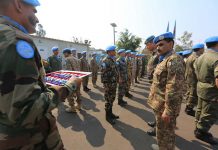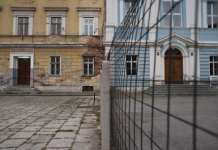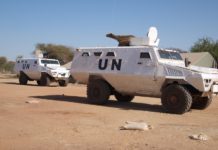Les discussions concernant le ‘remote control’ ou ‘contrôle à distance’ agitant depuis quelques années les milieux humanitaires, MSF particulièrement, il nous a semblé intéressant de partager cette contribution de Joe Belliveau, responsable de programmes au sein de la section hollandaise pour la Somalie, parue dans la revue Humanitarian Exchange Magazine (janvier 2013, numéro 56).
Il y explicite les raisons qui feraient du ‘contrôle à distance’ un outil efficace dans la mise en oeuvre des programmes de MSF en Somalie, en insistant sur les succès d’une stratégie pariant sur contrôle accru des employés nationaux par une coordination située à plusieurs centaines de kilomètres.
« REMOTE MANAGEMENT » IN SOMALIA, By Joe Belliveau
Core to Médecins Sans Frontières (MSF)’s approach to assistance is sending international staff into foreign contexts to work with, and usually direct, locally recruited national staff. Outsiders bring experience, leadership and technical skills, and are in a better position to ‘witness’ intolerable situations and speak out about them. International staff are also better able to resist local pressures for resource diversion, giving MSF greater confidence that donor money is being spent appropriately. For many within and outside MSF, this model is the only responsible option because the compromises assumed to be inherent in a remotely managed programme are unacceptable. MSF-Operational Center Amsterdam (MSFOCA)’ s experience in Somalia challenges this paradigm, and suggests that the specific remote management model developed in this context works well and does not entail unacceptable compromises. While remote management should never be a first choice, in some contexts it can be a viable operational alternative to the deployment of international staff.
Background
On 28 January 2008 three MSF employees, one local and two international, were killed by a roadside bomb in the Somali port city of Kismayo. The deaths prompted the withdrawal of all MSF international staff across Somalia. As the risk of deploying expatriates, at least permanently, became too great, the mission set about adapting to this new reality.
Remote management was not without precedent within MSF, but there was little documentation of lessons learnt, necessary preconditions and tools, protocols or strategies that could help guide the process in Somalia. The mission therefore started from scratch by identifying the following risks:
– Reduced control over resources, especially cash and consumable items.
– Declining medical quality.
– Limited or no programme expansion or adaptation, including emergency response.
– Increased risk to national staff, especially in senior positions.
– Impartiality could be compromised by local clan dynamics reflected in the staff corps.
– Limited or no témoignage (witnessing and speaking out on behalf of the affected population).
A system was subsequently developed to mitigate these risks, based on new and adapted tools and procedures. Gradually mission culture shifted and national staff, supported and held accountable by a mixed Somali, Kenyan and international Country Management Team (CMT) based in Nairobi, took greater ownership of programme activities.
Derniers articles parCrash-MSF (voir tous)
- Perception du danger et gestion de la sécurité – 4 avril 2014
- Three questions to Fabrice Weissman on current humanitarian challenges – 2 juin 2013
- Perspectives pour l’avenir de l’action humanitaire – 29 avril 2013







